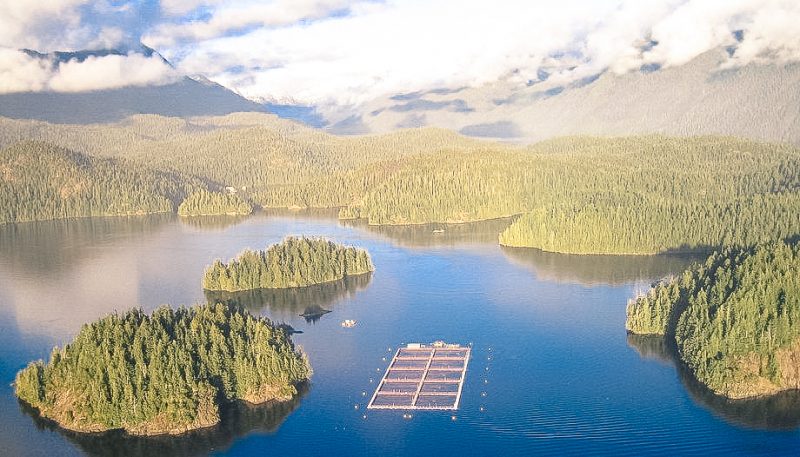No sea lice violations at B.C. salmon farms, says DFO
This Canada Day, fact check the claims being made by a noisy few who threaten our food supply security
Commentary
By Fabian Dawson
SeaWestNews
More so than ever before, the COVID-19 pandemic is showing Canadians why we need to improve our access to affordable, nutritious and sustainable food.
Almost one in seven (14.6 percent) Canadians said that they lived in a household where food insecurity was a problem, according to Statistics Canada. This number is up from 10.5 percent just two years ago.
The average Canadian family is expected to spend an additional $487 on food in 2020, states a new report by the Dalhousie University and the University of Guelph.
Another study by FoodShare Toronto and the PROOF research team at the University of Toronto found that Black and Indigenous Canadians are more likely to experience barriers to affordable food.
During this time of great uncertainty, Canadians need to come together to strengthen the resilience of our food supply system.
But don’t tell that to the loud science-deficit voices that seem to dominate the headlines when it comes to farming fish in its natural ocean environment in B.C.
Last week, when B.C.’s salmon farmers were busy distributing over half a million meals to food banks across Canada struggling with increased demand due to the pandemic, this group was spending money to disseminate dubious presentations of data to media outlets.
Cloaking itself in First Nations rights, this group led by a so called “independent” biologist claimed again that hazardous levels of naturally occurring parasitic sea lice in B.C. waters should necessitate the shutting down of the salmon farming industry, which supports over 7,000 families in the province.
Canada’s Department of Fisheries and Oceans (DFO) responded saying: “Sea lice in British Columbia during the 2020 outmigration (March 1 to June 30) have been controlled, with no facilities violating licence conditions.”
But that got lost in the ensuing alarming news stories with headlines like B.C. First Nations say sea lice spreading from fish farms to wild salmon.
It would have been more appropriate for the coverage to be headlined “B.C. First Nations being infected by sea lies.”
This group, financed in part by foreign funds and politically connected business people in Vancouver seeking government handouts, are hell bent on killing B.C.’s fish farming industry. They want it replaced by operations that grow fish on land, which have failed numerous times in B.C.
They are well aware that land-based fish farming cannot compete with raising fish in its natural environment in terms of sustainability, affordability and resilience.
So they make up all kinds of stories forcing governments to conduct studies and counter their claims that cost taxpayers hundreds of thousands of dollars.
Any media outlet that does not parrot their claims or question their studies is labelled fake.
This Canada Day as we struggle with the COVID-19 pandemic, let us cherish the bounty of our land and oceans.
We need to scrutinize the journey of our food from our farms to our plates, through the lens of credible science not hidden agenda-driven activism.
Most importantly fact check the claims being made by a noisy few who threaten Canada’s seafood supply security by claiming to be wild first.
Their notion that wild salmon stocks, which are continually being threatened by climate change, overfishing, up-stream habitat destruction and natural disasters, will rebound if we end raising fish in the ocean, is simply not true.
(A Cermaq farm near Tofino, Vancouver Island. Photo: Cermaq)
RELATED STORIES

